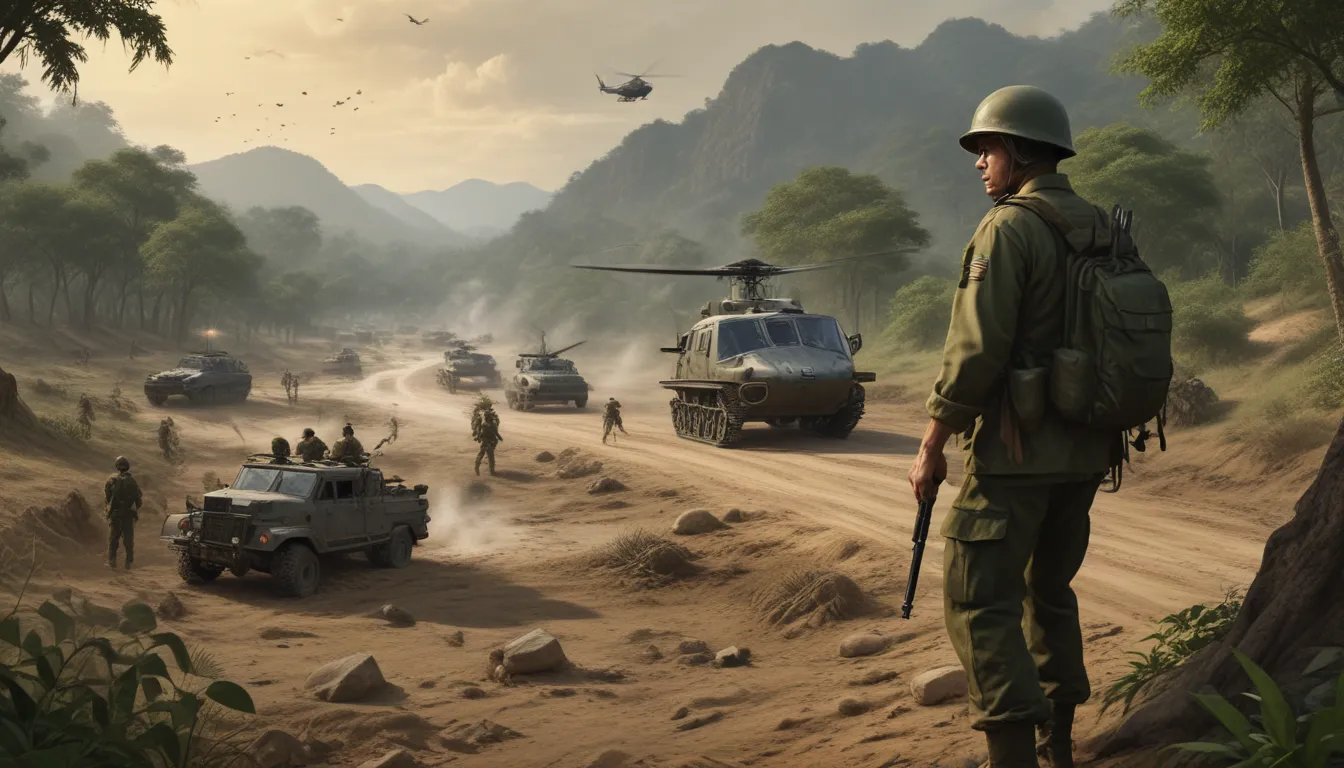The images in our articles may not match the content exactly. They are used to grab your attention, not to show the exact details in the text. The images complement the text but do not replace it.
Welcome to a deep dive into the tumultuous and complex history of the Vietnam War. This conflict, which spanned almost two decades, had far-reaching consequences that continue to shape our world today. From the roots of the war in World War II to the psychological impact it had on American society, we will explore the key facts that define this pivotal moment in history.
The Origins of the Vietnam War
The Vietnam War traces its origins back to World War II when Japanese occupation of French Indochina sparked resistance from the communist-led Viet Minh. Supported by the Allies, including the USA, the Viet Minh fought against the return of French colonial rule after the war. This eventually led to the division of Vietnam into North and South in 1950, setting the stage for the conflict that would follow.
The Domino Theory and American Policy
The Domino Theory, first articulated by President Eisenhower in 1954, underlined American fears of the spread of communism in Southeast Asia. This theory posited that a communist victory in Vietnam would lead to the fall of neighboring countries like Thailand and Indonesia. To counter this perceived threat, the USA intervened in Vietnam, escalating its involvement over the years.
Internal Struggles in South Vietnam
South Vietnam faced internal challenges, with President Ngo Dinh Diem’s unpopular leadership exacerbating existing divisions. Diem’s close ties to Catholic groups, in a predominantly Buddhist country, alienated many, leading to widespread opposition. Corruption, landowner favoritism, and rigged elections further destabilized the government, paving the way for the USA’s intervention.
US Involvement Escalates
Initially cautious, the USA gradually deepened its involvement in Vietnam. From CIA operations to naval support, American presence in the region increased significantly. The decision to back a coup against Diem in 1963 signaled a turning point, setting the stage for direct military intervention in the years to come.
The Gulf of Tonkin Incident
The Gulf of Tonkin Incident in 1964 marked a critical juncture in the Vietnam War, leading to a full-scale US intervention. The alleged attacks on US ships by North Vietnamese forces prompted Congress to authorize military action, paving the way for a massive bombing campaign over Vietnam and beyond.
The Tet Offensive and My Lai Massacre
In 1968, the Tet Offensive by North Vietnamese forces caught the Allies off guard, exposing the reality of the war to the American public. The same year, the shocking My Lai Massacre, where US troops killed hundreds of civilians, further eroded support for the war, both at home and abroad.
Legacy of Agent Orange
The use of Agent Orange, a toxic defoliant, during the war left a lasting impact on both Vietnamese civilians and US soldiers. The environmental contamination and health effects caused by Agent Orange led to decades of legal battles and compensation claims, highlighting the devastating consequences of chemical warfare.
War Crimes and Controversies
While the Vietnam War saw atrocities committed by all sides, including South Korean forces and the Viet Cong, the My Lai Massacre and the use of torture by North Vietnamese military stand out as particularly egregious examples of the brutality of war.
The Fall of Saigon and the Vietnam Syndrome
The fall of Saigon in 1975 marked the end of the Vietnam War, with communist forces seizing control of the city. This event led to the Vietnam Syndrome, a public perception that the USA should avoid foreign wars unless absolutely necessary. The war’s legacy continues to shape American foreign policy and military strategy to this day.
Evolution of the US Military
The Vietnam War brought about significant changes in the US military, leading to the end of the draft and the transition to an all-volunteer force. This shift transformed the way the military operates and maintains its readiness in conflicts around the world.
As we reflect on the Vietnam War and its enduring impact, we are reminded of the complexities of war and the importance of understanding history to prevent its repetition. Join us on this journey through the turbulent times of the Vietnam War, where courage, suffering, and resilience defined a generation.






